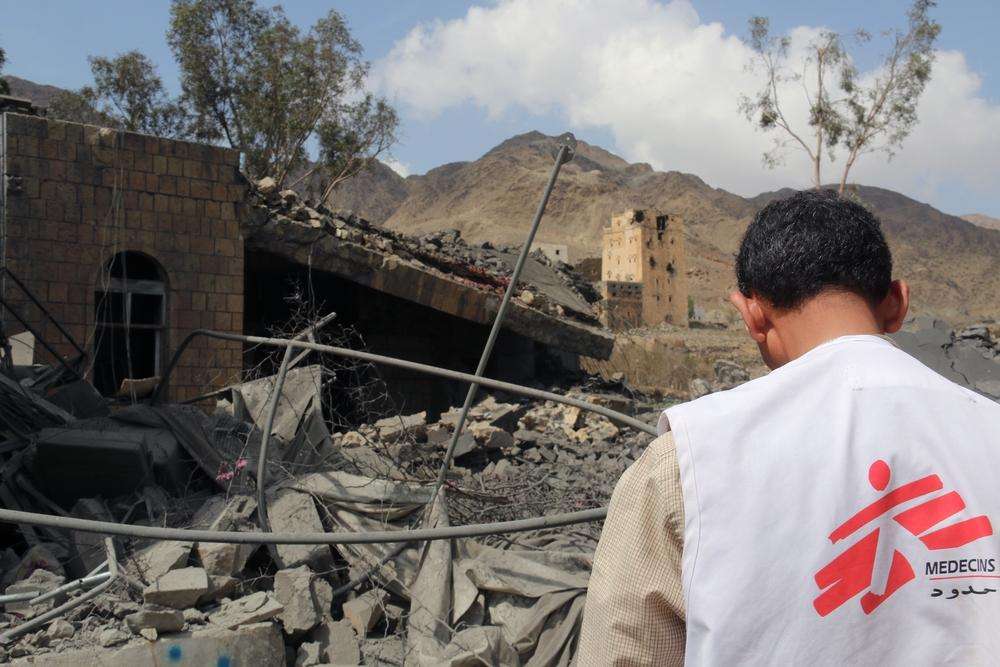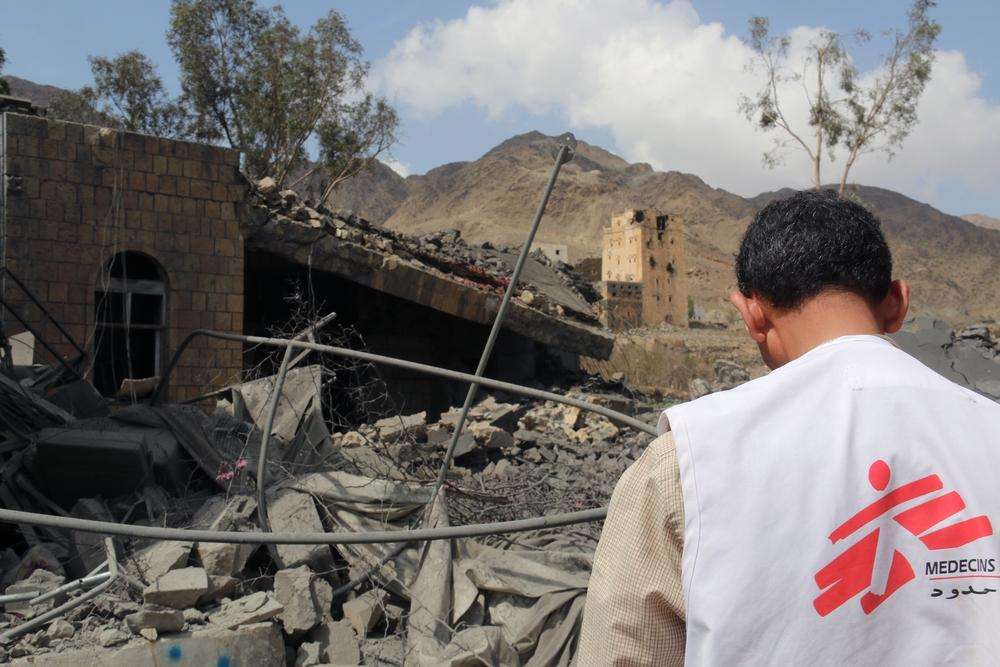On October 26, a Saudi-led coalition airstrike destroyed the hospital in Haydan, Yemen, supported by Doctors Without Borders/Médecins Sans Frontières (MSF). Here, Miriam Czech, MSF program coordinator in Yemen, describes what she saw in the town in the days following the bombing.
What’s left of the town of Haydan?
The main street and the houses and shops along it have been flattened. It’s practically empty, and anything left is bombed-out. Lots of buildings on nearby streets were also hit. A small town in a mountain valley, Haydan has changed a lot since my first visit in September 2015. Coalition planes have bombed it, and the region, time and time again.
Personnel at the hospital we support told me that in June and July bombs fell just 250 meters [820 feet] from the facility, hitting several houses, a school, and a market. But the air raids were even worse in October, especially during the week of October 12. They were so bad that the team advised us against going to the hospital, but my logistics colleague and I managed to get to it the following week.
We saw that several villages had suffered further damage, and that houses and the market in Haydan had been destroyed. Several days later, we made our routine visit to deliver drugs and monitor the refurbishment being done to improve hygiene and waste management. But the air raids continued—10 to 15 almost every day.
Haydan and the surrounding area were pounded night and day, until the night of October 26 when the bombing went on for two hours. The hospital supported by MSF was totally destroyed in the first wave. There’s nothing left of the emergency and consultation rooms, maternity unit, or inpatient department.
Was anyone injured in the bombings?
Amazingly, no. The personnel weren’t in the part of the building that was hit in the first strike, so they were able to take cover. And there weren’t any patients there that night.
During the days that followed I met with the staff. They were in a state of shock. But, even so, they wanted to get back to work. Haydan Hospital was the only one still functioning in the region, and it served close to 200,000 people. It was really busy.
During the week preceding the airstrike, 16 deliveries were attended in the maternity unit that we were supporting, and 150 patients were treated in the emergency room. Seventy-six were victims of the violence, many more than usual.
That same week, a house in the village of Al Kraid that was home to a family of 17 was shelled. They were brought to the hospital. Eleven (some pregnant women, others children) were either deceased on arrival or died in the emergency room. Just three people received treatment, while three others were transferred to the hospital in Saada.
The hospital also had an outpatient department where Ministry of Health personnel gave around 100 consultations a week, 60 to children being treated for malnutrition. But it appears there were fewer patients than usual in the hospital because people were afraid of the very heavy intense bombing.
How are people in the region managing with all these air raids?
Although there seem to be fewer strikes on Haydan, they’re still happening. The day after the hospital was destroyed, we saw people in loaded-up cars on the road out of the town. It’s deserted. Its inhabitants have fled to caves carved into the cliffs around Haydan, and some told me there can be several families hiding in one cave. They can’t sleep lying down because they have barely enough room even to sit and they only go out to look for food. They use stones to block entry to the caves.
Is Haydan the only place being bombed by the coalition?
The whole region is being targeted, and that includes villages and roads. Roads are littered with wrecked trucks and craters caused by the explosions. Several bridges on the main route to Saada have been damaged.
The hospital in Saqim was destroyed by a coalition air strike last June and, at the end of August, it was the turn of the health center in Maran, also in Saada Governorate. The small town of Kitaf, where there is a hospital we would like to assist, is also regularly bombed as are, for example, the village of Majz and the towns of Razeh and Ghamr. Indiscriminate bombing is rife.
Read More About MSF's Work in Yemen





